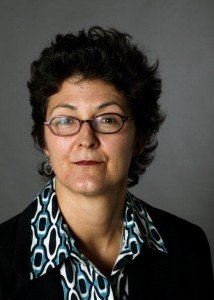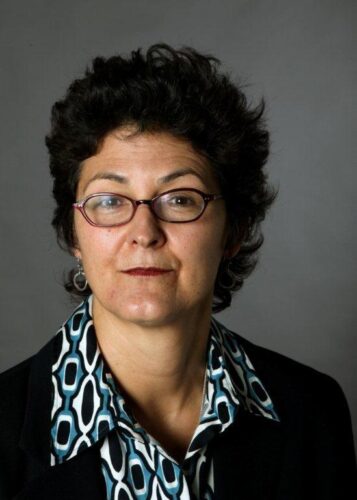#MediaMonday – Julie Cart, Los Angeles Times
Fo r the past two years, I have participated in an alumni panel for ASU’s Cronkite School during homecoming activities. Julie Cart has been part of the panel both of those years. We had some great conversations and I thought it would be fun to profile her here on Media Monday. Our other panelist this year was Linda Kauss of USA Today.
r the past two years, I have participated in an alumni panel for ASU’s Cronkite School during homecoming activities. Julie Cart has been part of the panel both of those years. We had some great conversations and I thought it would be fun to profile her here on Media Monday. Our other panelist this year was Linda Kauss of USA Today.
As you know, we ask the media to tell you their story in their words. Here’s what Julie has to say:
I was one of the lucky ones who knew what she wanted to do from a young age. I used to read the newspaper to my mom while she was in the kitchen cooking dinner. I endlessly “interviewed” relatives, pretending they were influential world leaders. I wrote fanciful news stories describing my brothers’ Little League games, as if they were the seventh game of the World Series. I edited my high school paper and when I was in college I worked as a copy kid at the Arizona Republic and at a wire service.
Alas, that single-mindedness has left me with no other marketable talent. Go into the home of a journalist and you will encounter leaking kitchen faucets, badly crafted woodworking “projects” and a car sorely in need of an oil change. When it comes to real-world skills, we’re not much use.
Once, while on assignment in Cuba, I found myself with other reporters in a car of questionable soundness, racing from Havana to Santiago de Cuba. In a rainstorm. Predictably, the car developed a flat tire. Among my three colleagues—big-shot journos, all—not one knew how to change a tire.
(I changed it. And I’m still mad about it.)
The narrowness of our training makes it difficult for journalists to cope with the rapidly changing landscape of our business. My corporate masters have laid off half our newsroom. It’s been awful, watching former colleagues thrashing around to forge new careers. Many think a natural transition is public relations or crisis management. Seems logical.
But in practice, not so much. More often than I like to recall, former newspaper reporters who have taken PR jobs tell me of the not-so-pretty view from the other side of the fence. They report how many journalists are sloppy, how they routinely take shortcuts, that mistakes are common. Lots of reporters are jerks. Talk about the shock of recognition.
What I know about the public relations profession I have learned from professional PR people. I could no more switch careers now than I could pilot a plane. In some cases, the results might be as scary. I’m pretty much stuck in my career track, and, as shaky as our future is, I’m OK with that.
I serve on a board of advisors to the dean of the Cronkite School and have taken part in a couple of panels that examine the intersection of journalism and public relations. Our discussions have been thoughtful. It’s always a valuable exercise to take a step back and take in the view. Listening to Abbie, a fellow Sun Devil, and seeing how she goes about her business, makes me think that if everyone adheres to the standards that she maintains, we’d all be better served.
It also confirms to me that I’d better stick to what I’m doing. Don’t seem to be able to do anything else….

